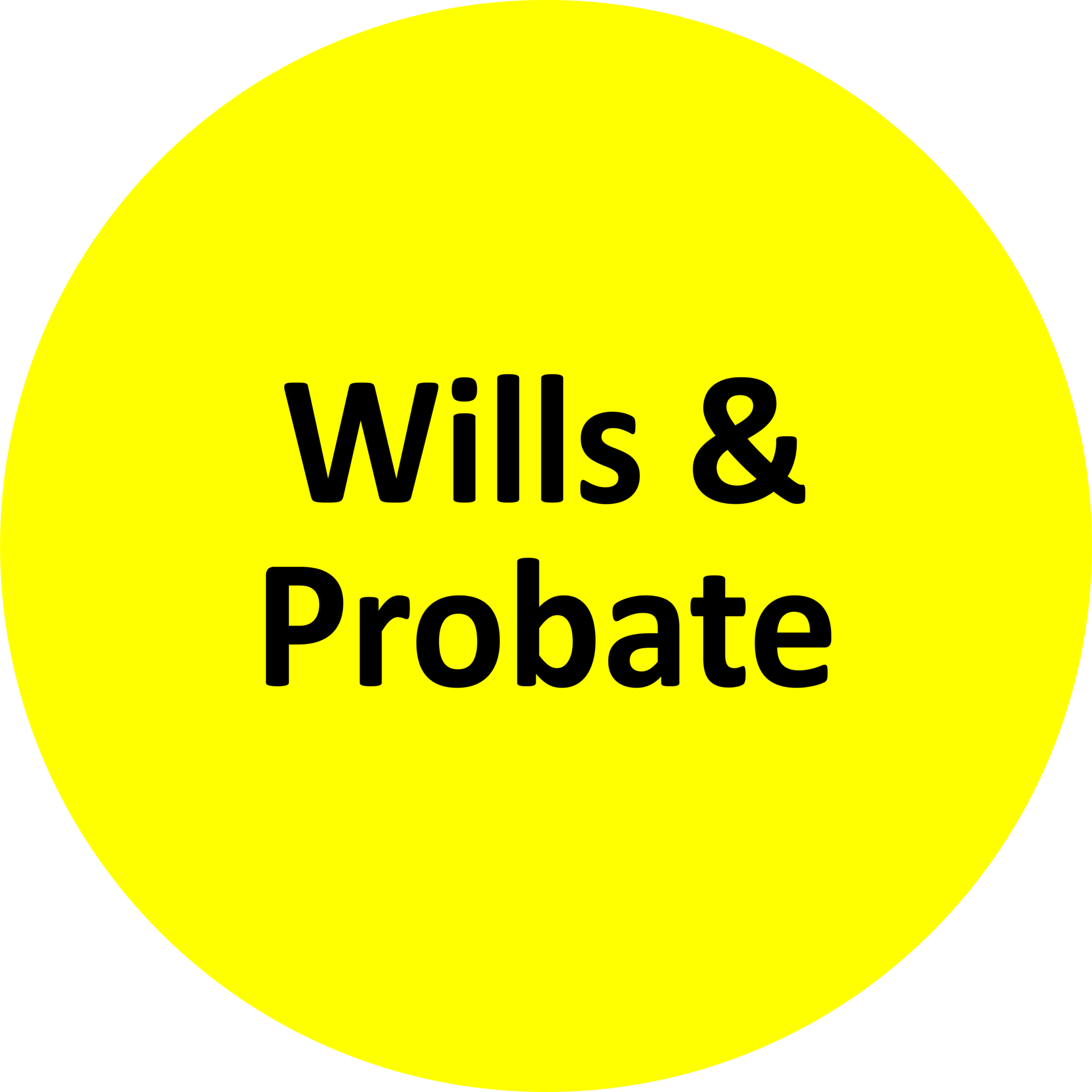What is the difference between Mutual Wills and Mirror Wills?
Posted on 24th September 2019
Both wills are generally accepted to be two wills, made by partners or spouses, the terms of which mirror one another i.e. if one is leaving everything to the cat’s home, then generally the other will be, too.
The difference between them, however, is that in the case of mirror wills, there is nothing to stop either person changing their Wills, even if they are still with the ‘mirror’ person. With mutual wills, the testators agree to limit their ability to change their wills in the future, which renders any new wills in the future potentially ineffective. The mutual wills can be revoked during the lifetimes of both testators, but, on the first death, the survivor is prevented from making a new will in the future.
Fixed-fee Wills and Probate Solicitors:
MG Legal's leading Wills and Probate Solicitors in Preston offer all of our private client services on a clear, fixed-fee rate.
Our team put your first, and work with care to ensure that your wishes are met. Call us today on a free, no-obligation basis at: 01772 783314

Get in touch today to speak to a Wills and Probate Solicitor.
Is it better to make mutual wills or mirror wills?
Well, it depends on where you’re sitting! Our team of Probate solicitors in Preston would explain that the issue with mirror wills can be when the deceased’s intended beneficiaries are cut-out of a will (if it’s changed after their death).
For example, let’s use Mr and Mrs Smith (fictional characters, for those of you wondering – we know that GDPR is important!).
Mr Smith has three children from his first marriage. Mrs Smith has two children from her first marriage. Both have their own significant assets entering into the marriage, and they want to join their assets, but make sure their children are equally provided for. They may decide to make mirror wills: in the first case, they would leave everything to each other, and on the second death they would agree to leave everything to all five children, either 50% to Mr Smith’s children, and 50% to Mrs Smith’s children, or 20% to each child. They may even decide to divide the estate differently, but that’s up to them.
So, the issue here would be that, on the second death, the survivor could change their will so that their own children inherit everything, essentially cutting out the other spouse’s children. This doesn’t seem fair, right?
Why choose MG Legal:

Transparent fees.

We are the experts.

Multiple Office Locations.

Give us a call at any time.
But, are mutual wills any better?
Well, the issue with mutual wills could be that the testator is prevented from changing their will after the first spouse dies. So, again, here’s an example:
Mr Smith has passed away first, leaving Mrs Smith with their mutual will in place. The will states that everything passes to Mrs Smith, with the estate to be divided as to 50% to Mr Smith’s children, and 50% to Mrs Smith’s children. However, Mrs Smith has met someone else, and they decide to get married, becoming Mr & Mrs Johnson.
Mr Johnson has no children of his own, but wants Mrs Johnson (nee Smith) to get his estate on his death. Now, he leaves everything to her, but it is his wish that, on Mrs Johnson’s death, everything should pass to her children. As Mrs Johnson cannot change her will, the danger here would be that Mr Johnson’s estate would be included in the ‘pot’ when Mrs Johnson dies, so his share of her estate would pass to Mr Smith’s children, too.
It might seem obvious – Mr Johnson should leave his estate to her children directly, but it may be that he wasn’t aware of the terms of Mrs Johnson’s Will, so he may have thought this would happen anyway (the Rules of Intestacy could apply).
This matter seems very complicated, but things like this can happen, and it’s important to see the issue with mutual wills before you try and enter into them!
It’s also important to note that whilst normally getting married would revoke any previous Wills made, if one of the couple from a mutual will has passed away, a contract has been formed which is not revoked by marriage.
It’s not just spouses or partners who can contemplate mutual wills…
In the case of Charles and others v Fraser [2010] EWHC 2154 (Ch), the Court dealt with a case where two sisters had agree to make wills of similar terms (without including any specific clauses to say that they were mutual wills), however both sisters had previously said that they did not want their dispositions to be changed, which led the High Court to rule that the sisters had entered into a binding contractual agreement to support a mutual wills constructive trust.
Our team of Probate solicitors in Preston would recommend checking with your solicitors before making wills, and ensuring that you are very clear about whether you want the wills to be mutual or mirror wills, or even completely different!
For advice on how to change your mirror will, or making a new will, contact our expert team of probate solicitors in Preston on 01772 783 314 or email wills@mglegal.co.uk.
Lorraine and Hope are on-hand to provide you with all the advice that you need.
Expert legal services across England and Wales:
No matter where you are located across England and Wales, MG Legal's expert Wills and Probate solicitors are here to help you to achieve the best possible outcome in your legal matter.

Free Consultation

Nationwide Services

Decades of Experience

No Win No Fee Injury Claims

Multiple Office Locations

Fully-Qualified Solicitors

MG Legal – Your Local Solicitors
Tagged as: Garstang Solicitors, Lancaster Law, Lasting Powers of Attorney, Property Law, Solicitors in Preston, Wills and Probate, Your Local Solicitors
Share this post:








